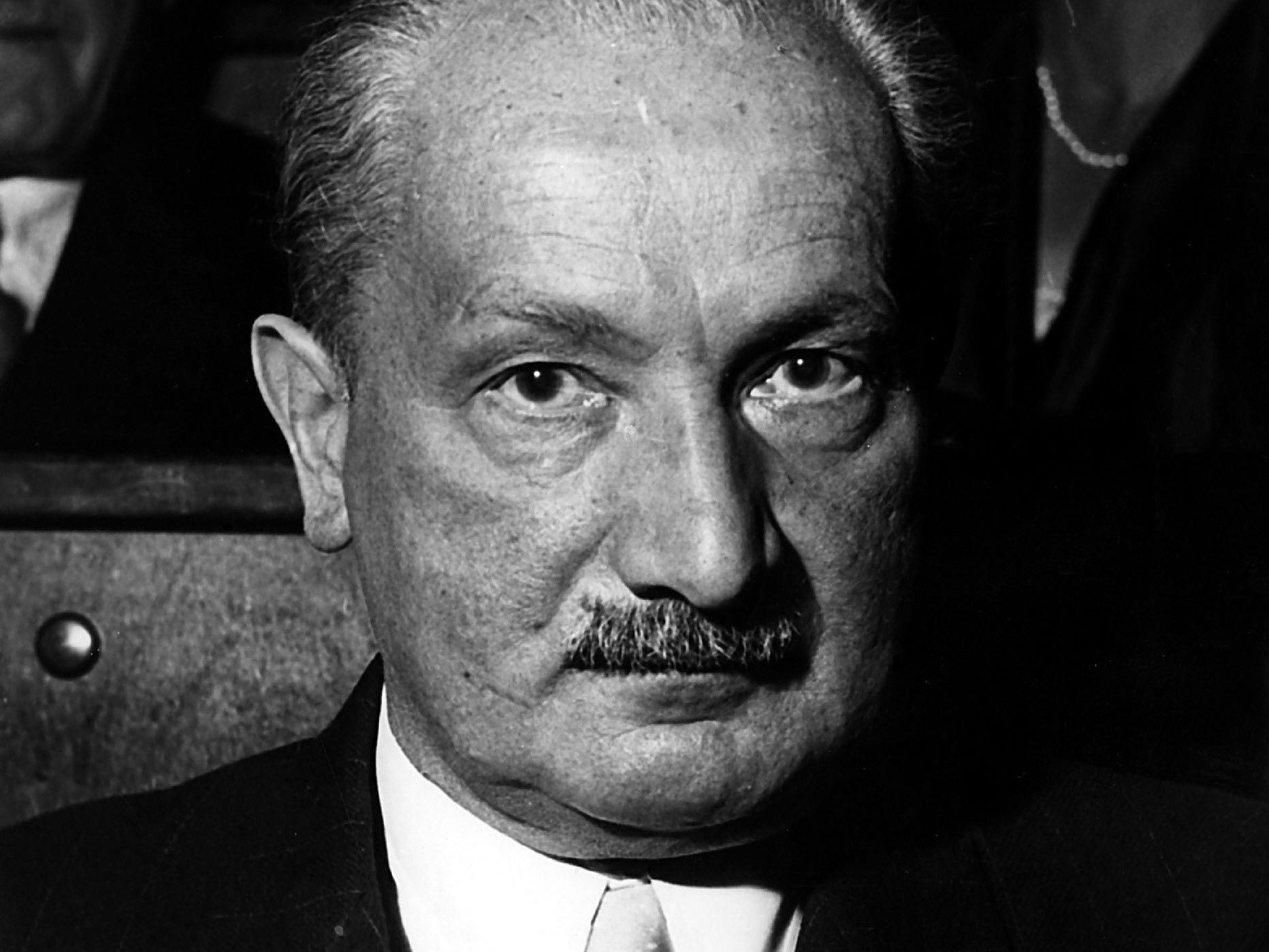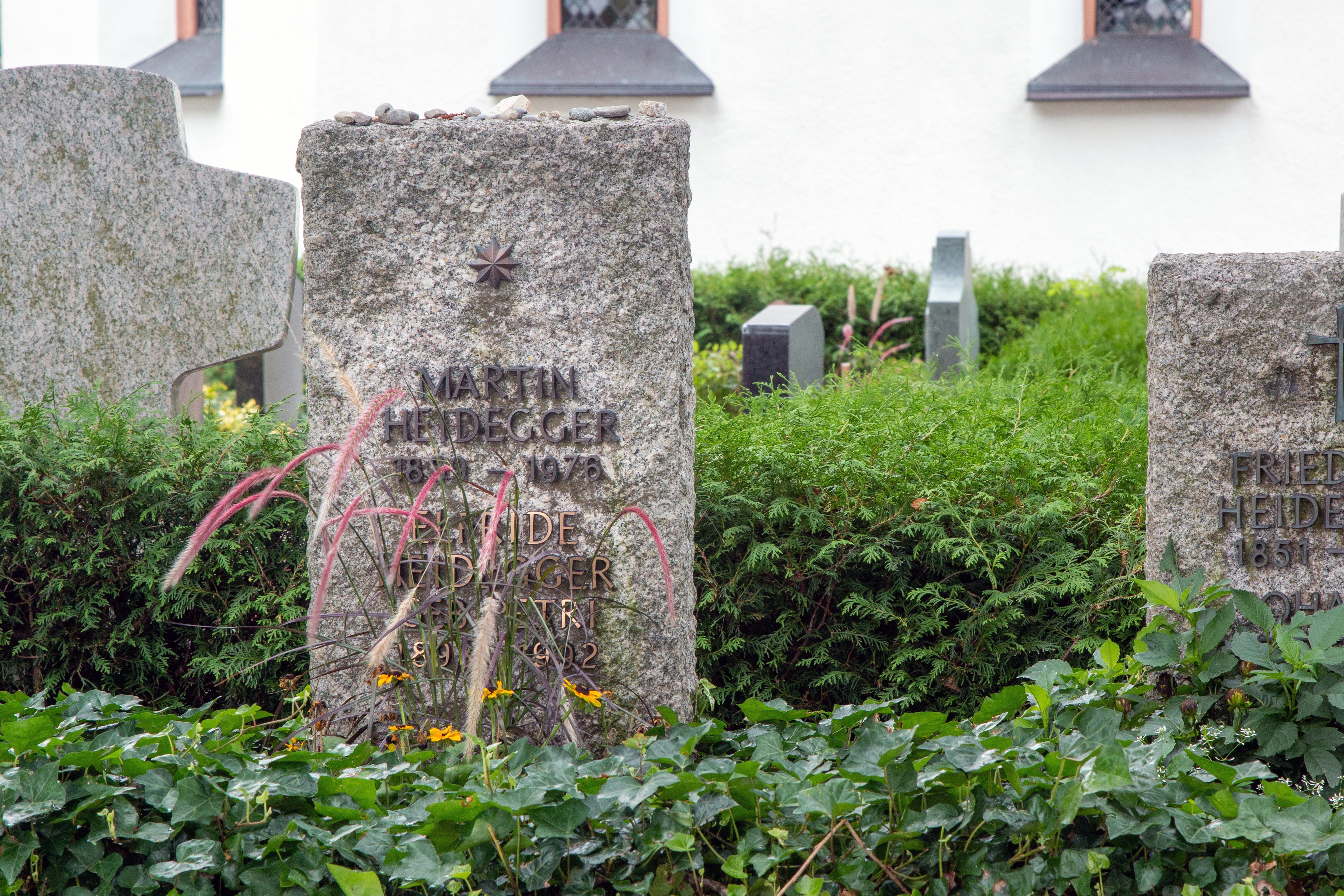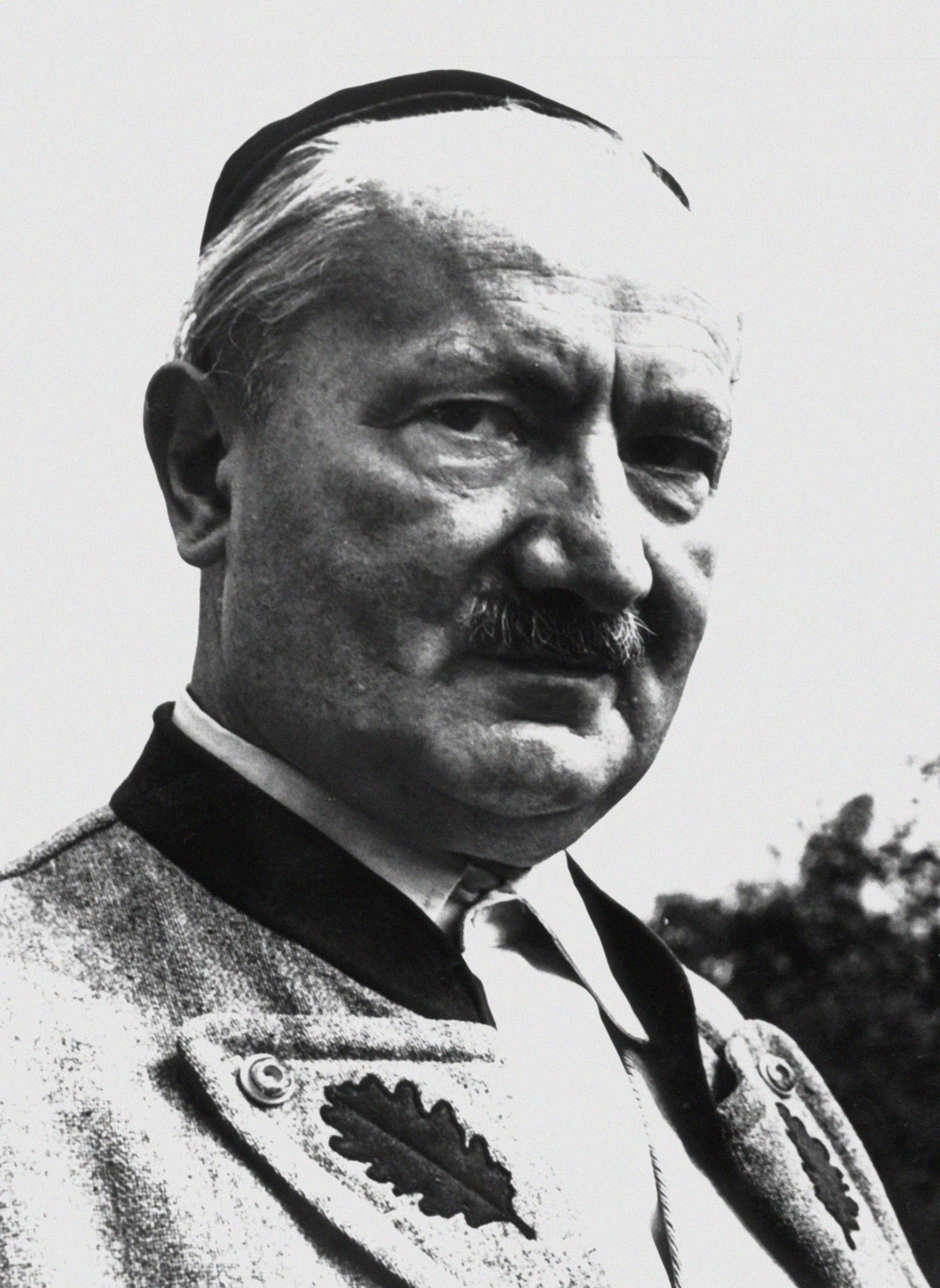Martin Heidegger and the question of being
We are still trying to understand Heidegger’s true importance in western philosophy

It was in the nature of 19th century German philosophers to tackle the big questions of God, time and being head on. Martin Heidegger (1889–1976) was one of the more successful.
A fallacy is an error of reasoning. Perhaps the most common one is the fallacy of argumentum ad hominem (argument to the man). An ad hominem is an argument directed not at the truth of a person’s premises or the quality of their reasoning, but at the person themselves. It nearly goes without saying that a perfect villain can produce a fine piece of argumentation. A thug can say something true. Pointing out that a person is a villain does nothing to undercut the truth of their conclusions. Let us try to keep this logic primer firmly in mind throughout this consideration of the philosophy of Martin Heidegger. Some won’t find this easy.
Heidegger was born in a small village in the Black Forest region of Germany, the eldest of the two sons of Friedrich and Johanna Heidegger. He had a religious impulse and tried to become a Jesuit but was refused on the grounds of ill health. He took up the study of theology, physics, mathematics and philosophy at the University of Freiburg, where he came under the influence of the writings of Husserl. His studies were interrupted by the First World War and brief service in the army. He was discharged within a year despite swift promotion, again for health reasons. He earned his doctorate with a thesis on the relation between psychology and philosophy, eventually working as a lecturer in philosophy at Freiburg, receiving modest payment for teaching from tuition fees.
Husserl took a post at the university of Freiburg, and Heidegger became his protege, eventually breaking with Husserl’s epistemology and method and striking out on his own. The result was Being and Time, and the book’s success and Husserl’s retirement afforded Heidegger the opportunity to take an excellent post at the university. He became its rector in 1933.

He also joined the National Socialist Party. He attended Nazi social gatherings in full socialist regalia. In his inaugural address, “The Self-Assertion of the German University”, Heidegger went on a little about the spiritual mission of the people, the true destiny of Germany, and the role of the new rector in guiding the students and staff in the greater glorification of the German people. In a later speech, he told his students that “the Führer alone is the present and future German reality and its law”. He reported to the authorities what he took to be the inappropriate thinking of several students and faculty members.
Following the war, the Freiburg Denazification Committee found that Heidegger held a prominent position in the Nazi Party and had incited students against some of his colleagues. He was stripped of his teaching post, pensioned off and forbidden to teach until 1951. Heidegger spent some time in an asylum. He was eventually reinstated as Professor Emeritus but never taught in Germany again. Despite the urgings of prominent friends, Herbert Marcuse among them, Heidegger never commented publicly on or apologised for his activities during the war.
The question of being
Being and Time is an unusual and original book, dealing as it does with a peculiar question, what Heidegger calls “the question of being”. It is Heidegger’s contention that philosophical and everyday thinking somehow obscures the true nature of what it is for something to exist, and his project is to uncover and rethink being in its proper light. It is his view that the Pre-Socratic philosophers were somehow genuinely in touch with or had the right conception of being, which philosophy has since managed to bury and obscure. His efforts consist in part in recovering this ancient conception. The largest part of the problem is conceptual, and this manifests itself in misleading talk about being. The solution involves us in neologisms, which some find unduly obscurantist. Perhaps some charity is required here. If Heidegger is right, and the language we use clouds an honest grasp of his subject matter, what else can he do but coin new words or use old words in unusual ways?
If the genuine self consists partly in the recognition of both past determinants and future possibilities, the third feature of Dasein, fallenness, identifies the human capacity to ignore both past and future
One such word is “Dasein”, translated variously as “the entity which each of us himself is” or “being-in-the-world”. The bare term is used so as to beg no questions, presuppose no notion of person or human being beyond whatever it is that we are. Coming to grips with the nature of being, Heidegger seems to suppose, requires a consideration of a certain sort of being, us, for whom the question “What is being?” is a fundamental or at least a component part of its nature.
Philosophical misconceptions of the nature of human beings abound. Thus Heidegger: “… all conventional, objectifying representations of a capsule-like psyche, subject, person, ego or consciousness in psychology and psychopathology must be abandoned in favour of an entirely different understanding. The new view of the basic constitution of the human being may be called Dasein or being-in-the-world.”

What is a person?
Consider Descartes’ conception of a person as consisting in the intimate union of two distinct substances, one mental and the other physical. We take it that the world of objects is a physical world, but then what to do with the part of us that is mental? If a human being is conceived as one part bodily, an object like any other in the world, and one part mental, a thinking thing entirely unlike physical objects, our fundamental place within the world is thus obscured. In particular, our nature as being-in-the-world, things with an intimate concern with the world, is somehow neglected. The Cartesian view disconnects us from physical reality.
A large part of the project thus entails a fleshing out of the fundamental features of Dasein, a re-conceptualisation of whatever it is that we are which takes account of our relation to the world. Heidegger identifies three such features: factuality, existentiality and fallenness.

Features of Dasein
Dasein is, in a sense, already here. A part of the human condition, which Heidegger calls our “factuality”, consists in being thrown in the world, abandoned as it were by some past disaster to a life raft, being already a part of the ongoing show. It is possible to have the experience of just waking up in the middle of a life, recognising that one is where one is as a result of some past facts or decisions over which one now has no control. This is the factuality of Dasein, and it consists in the fact that Dasein has a past through which it is somehow constituted in the present.
Dasein, despite being partially determined by the past, also has a feeling of freedom with respect to the future. Dasein is not just constituted by its fixed past but also by its open, possible future, and the responsibility which attends this. This is the existentiality of Dasein, and it pulls in the opposite direction of factuality, not back to the past but forwards into the future.
Certainly he had an effect on Sartre and the existentialist movement in philosophy, although he was at pains to distance himself from it
If the genuine self consists partly in the recognition of both past determinants and future possibilities, the third feature of Dasein, fallenness, identifies the human capacity to ignore both past and future. As a being in the world, Dasein loses itself in the mundane concerns of the present moment. Past and future horizons shrink to a present vanishing point. It is a simple fact of humanity that we neglect large parts of our nature, our past and future, embedding ourselves in the daily grind. We really do measure out our lives with coffee spoons.
It should be clear by now that the nature of being, as revealed by this consideration of the nature of Dasein, is bound up with time. Coming to a recognition of this is part of Heidegger’s answer to the question of being. He writes: “Temporality temporalises itself fully in each ecstasy, ie in the ecstatic unity of the complete temporalising of temporality there is grounded the wholeness of the structural complex of existentiality, factuality and fallenness, which comprises the unity of the care-structure.”
Some might not find the language helpful, but the point is that human time in its entirety requires careful consideration if we are to understand the true nature of being. We have to do better than our current preoccupation with the present. In addition to having a past and a present, human time is essentially a time with a limit. The true meaning of Dasein consists partly in the recognition of past determinants and present concerns, but also in being alive to future possibilities. It requires being alive to one inescapable future possibility in particular: being dead. The authentic self brings its many temporal relations into a kind of unity, in light of past, present and a limited future, and acts in the world on this basis.

There is no question of Heidegger’s large influence on recent thinking, particularly on the philosophy of Continental Europe. Certainly, he had an effect on Sartre and the existentialist movement in philosophy, although he was at pains to distance himself from it. The current preoccupation with deconstruction, in particular in the hands of Jacques Derrida and some feminist philosophers, but also as a form of literary criticism, is certainly owed to Heidegger. Marxists and social critics of nearly every sort find in Heidegger grist for various mills. Heidegger wrote a great deal following his suspension from teaching, much of which has still to be published and translated into English. Given this, if nothing else, it is likely that Heidegger’s true importance in the history of philosophy has not yet been realised.
Major works
Being and Time (1927)
This is Heidegger’s most impressive work. It was his first work of any academic significance, and secured him a full professorship at Marburg University. It is a long, highly technical (some might say obscurantist) analysis of human nature and its fundamental connection to time. It introduces the concept of Dasein, “being-in-itself”, and attempts to discover the essence of this being.




Join our commenting forum
Join thought-provoking conversations, follow other Independent readers and see their replies
0Comments